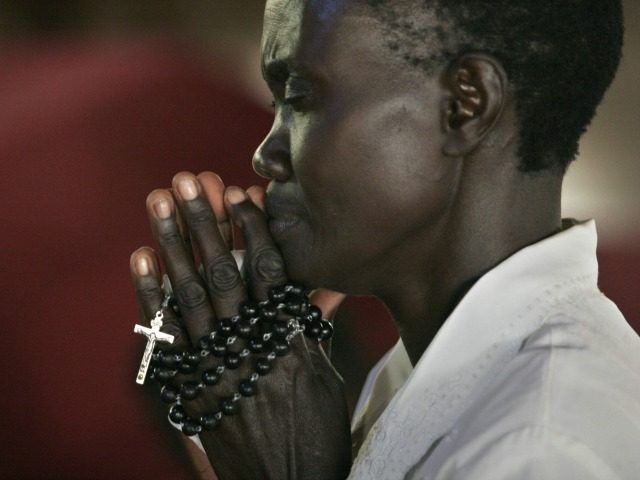ROME — Christians are experiencing “genocidal, religious-based violence” in many parts of Africa as Islamic terror groups gain greater traction on the continent, according to Save the Persecuted Christians, a U.S.-based charity.
The West needs to come to terms with the fact that what is going on in Africa is “genocidal, religious-based violence, enacted against Christians by Sharia supremacist extremist groups,” said Dede Laugesen, executive director of Save the Persecuted Christians, in an interview published Wednesday with Crux, an international Catholic news outlet.
“They must also come to terms with the fact that the Islamic State has not been defeated, but has merely moved to new territory in Africa and is a growing threat not only there but, if allowed to flourish, to the interests of the United States, Europe and the world,” Mr. Laugesen said.
Several factors are contributing to the increase of Christian persecution in Africa, he said, not least of which is the steady growth of Christianity itself.
“Because Christianity is experiencing its greatest growth in Africa, Christians are increasingly seen as a threat to Muslim-dominated lands and governments,” Laugesen said. “Mass territories of uninhabited, ungoverned regions provide easy cover for Islamic terror group activities.”
“Combined with extreme poverty, joblessness and well-established routes for illegal arms dealing and the illicit slave trade, resource-rich African countries north of the equator provide fertile ground for Islamic State fighters fleeing the Middle East and are looking for new territories to dominate,” he added.
Laugesen underscored the importance of acknowledging the religious nature of the persecution, which is often dishonestly portrayed in the West as merely economic or ethnic in nature. A case in point is Nigeria, he said, where government-backed Fulani militants regularly kill Christians with impunity.
“State support of extremist groups has been widely alleged in the Fulani-dominated federal government of Nigeria, which seems incapable of, or unwilling to, address increasing mass slaughter of Christians and rampant kidnappings-for-ransom by so-called Fulani herdsmen,” Laugesen said.
“The Nigerian government continues to force-feed a false narrative of ‘farmer versus herder clashes’ to the international community, which consistently refuses to acknowledge the religious basis for the violence that those harmed say is the primary and root cause,” he said.
Nigerian Christians themselves have no illusions as to the root cause of violence directed against them, which they know to be religiously driven.
Witnesses from “the mostly Christian Adara chiefdom of Kaduna state, which saw more than 400 mostly women and children killed in multiple well-armed Fulani ambushes in early 2019, said these attacks are a concerted effort to clear the land of Christian farmers,” Laugesen noted.
“They also said Fulani and Boko Haram activities are supported and encouraged by the federal government of Nigeria and northern state governments committed to the establishment of Sharia — Islam’s oppressive and authoritarian legal code — over the entire land,” he said.
According to reports by Aid to the Church in Need (ACN), of the top 50 countries where it is most dangerous to be a Christian, fourteen — or 28 percent — are in Africa, Laugesen recalled.
Throughout Africa, terror groups promoting Sharia supremacy are growing, he said, across northern Africa and the Sahel as well as the Lake Chad region, encompassing Nigeria, Niger, Chad, Cameroon, Burkina Faso, and Mali.
Persecution of Christians in East Africa is also gaining traction “in Somalia, Uganda, Mozambique and the Democratic Republic of the Congo,” he said, where “jihadist groups and anti-government rebels are growing lucrative networks for smuggling which funds their arms and operations.”

COMMENTS
Please let us know if you're having issues with commenting.